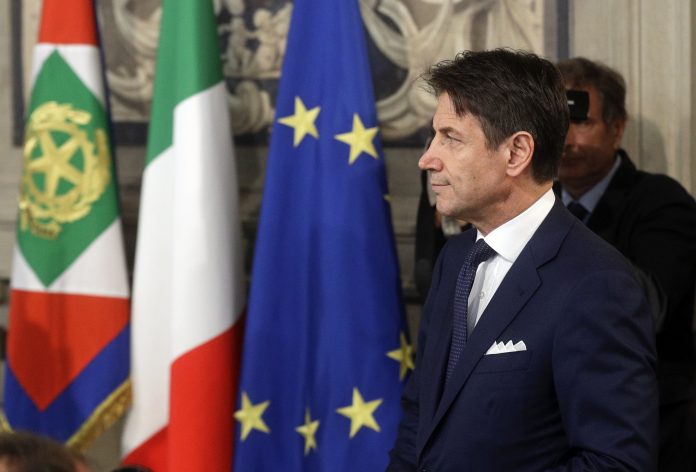
Italian Premier Giuseppe Conte forged a new coalition government Wednesday that teams up the populist 5-Star Movement and center-left Democrats in an unusual alliance of rivals to banish for now the specter of early election that likely could have seen the triumph of Italy’s fast-rising right-wing forces.
Six days after President Sergio Mattarella asked him to try to form a new government, Conte reported back to the presidential Quirinal Palace that he had succeeded with a coalition of two long-bitter rivals.
Conte and his new ministers will be sworn in Thursday. The premier said they would “dedicate our best energies, our abilities, our passion for making Italy better in the interest of all Italians.”
The prime minister’s first, 14-month-old government collapsed last month when anti-migrant Interior Minister Matteo Salvini yanked his League party out of Conte’s coalition.
Buoyed by months of rising popularity in opinion polls and the European Parliament elections, Salvini bet, wrongly it turned out, that his surprise late-summer pullout would prompt a fall election to give him the premiership.
But after days of haggling, Parliament’s largest opposition force, the Democratic Party, and the 5-Star Movement, long-bitter rivals, hammered out a deal.
“We stopped Salvini, and merely the announcement of this (new) phase is making Italy again a protagonist in Europe,” said Nicola Zingaretti. the Democratic Party’s staunchly pro-European Union leader,
Markets appeared to react favorably. Milan’s stock exchange index rose by 1.64%. The benchmark spread between 10-year German and Italian treasury bonds, which had been shrinking in the last days as the new government deal was looking firmer, dropped 10 points in one day, in a further sign Wednesday that investors were reassured.
Salvini professed confidence on Wednesday that he and his nationalist party will soon be back in power. The new government “can’t escape from the judgment of Italians for long,” he tweeted. He predicted that “in the end we will win.”
Conte gave no hint Wednesday how his government would grapple with the country’s thorny migrant problem that has propelled the right-wing to the top of opinion polls or what kind of relationship the new coalition, with the euro-skeptic Movement, would mold with European Union leaders in Brussels.
Salvini had exploited his role as interior minister to boost popularity among his voter base by stiffening a crackdown on humanitarian ships rescuing migrants at sea. His League party blames migrants for crime.
Replacing him as interior minister will be Luciana Lamorgese, a non-partisan immigration expert who recently served as an interior ministry official in Milan.
Both the Democrats and the 5-Stars have vowed to keep pressing the European Union for some systematic way to take the burden off countries like Italy, Greece, Spain and Malta, whose shores are the destinations of asylum-seekers, refugees and other migrants who are smuggled by human traffickers.
Salvini’s archrival and fellow deputy premier in the government he brought down, Movement leader Luigi Di Maio, becomes foreign minister.
Conte will lay out policies and goals when he pitches for support ahead of mandatory confidence votes in Parliament, likely early next week.
Helping to shore up his majority in both chambers is the inclusion in the new coalition of one minister from a tiny left-wing party. Roberto Speranza, who broke with the Democrats two years ago, will be health minister in the new government.
Key posts include Roberto Gualtieri, as economy minister. A Democrat, he’ll bring valuable insights into EU thinking since he heads the European Parliament’s commission on economy and finance.
Gualtieri will have to steer delicate maneuvers by the government to drastically pare down a deficit that worsened with the populists’ social welfare programs in Conte’s first government, amid a stubbornly flat economy.
Conte, until his first government began in June 2018, was a law professor and mediation specialist, a skill that came in handy when patching over differences between the ideologically distant 5-Stars and League ministers. But the spats between those two parties eventually grew nastier, and Salvini bolted.
Conte insists he’s non-partisan but says he sympathizes with the 5-Star Movement.q



















